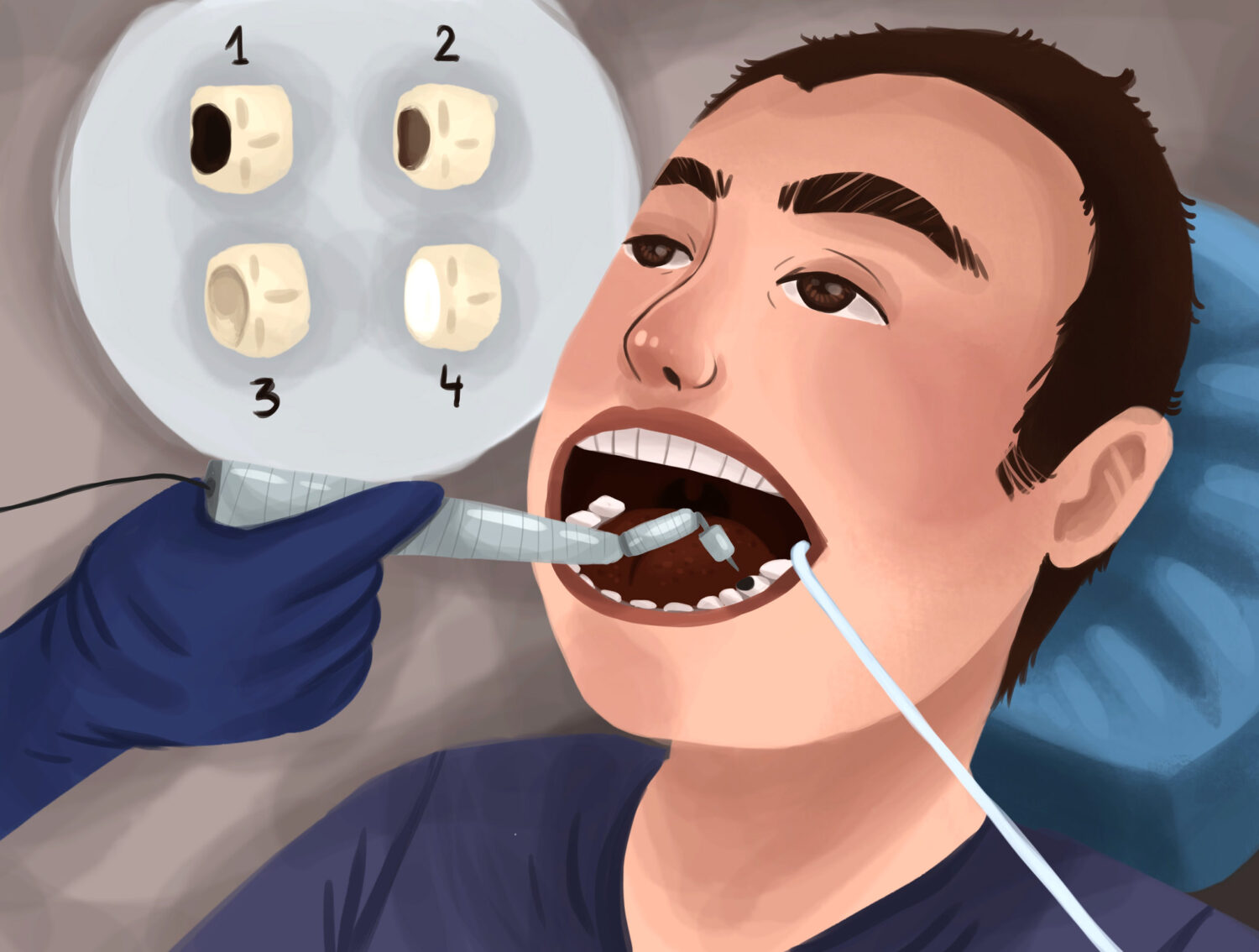In this post, we share practical and interactive ideas for parents to celebrate Children's Dental Health Month with their kids.
What Are the Warning Signs of a Cavity?

Tooth decay forms when acids produced by bacteria erode your enamel. These weakened areas of your tooth can often be fortified through improved oral hygiene and a balanced diet. However, if they are not remineralized, they can develop into permanent damage in the form of tiny holes, called cavities.
Your cavity risk increases if you consume a diet high in sugar, don’t clean your teeth well, or have chronic dry mouth. Genetics and teeth grinding can also put you at a higher risk for decay. To reduce your risk of cavities, be sure to: brush and floss every day; consume a balanced diet; drink plenty of water; wear a nightguard if you grind your teeth; and avoid tobacco products.
If untreated, cavities can lead to issues like infections and tooth loss! Watch out for these warning signs of a cavity:
- Sensitive Teeth
- Toothache
- Tooth Discoloration
As tooth decay erodes the surface of your teeth, it exposes the underlying dentin layer, which contains fluid-filled tubules connected to nerve endings in the inner pulp layer. These nerve endings are sensitive to temperature, sweetness, and acid. When a cavity is forming, you may feel a short, sharp pain when you eat or drink hot, cold, sweet, or acidic things. Pressure from brushing and flossing your teeth can also feel uncomfortable.
Pain is a warning that something is wrong! With cavities, tooth pain can begin as mild sensitivity or a persistent dull ache. Or it can come on suddenly as a sharp, stabbing pain. If the decay increases and damages your inner pulp, the pain can become intense and throbbing.
Poor oral hygiene can result in areas of yellow discoloration on your teeth because of plaque and tartar buildup. These deposits can usually be removed at your routine dental cleanings with special tools. In contrast, areas of early decay can look like white spots on your tooth enamel. And severe cavities can appear gray, brown, or black.
Cavity Treatment at CarolinasDentist
Decay and cavities won’t always cause warning signs that are noticeable at home. It’s important to visit one of our offices for regular cleanings and exams! Our dentists can diagnose cavities early on and recommend treatments like improved oral hygiene, dietary changes, or a tooth-colored dental filling.
If you have any questions about tooth decay or want to schedule an appointment at CarolinasDentist, please contact us today!









